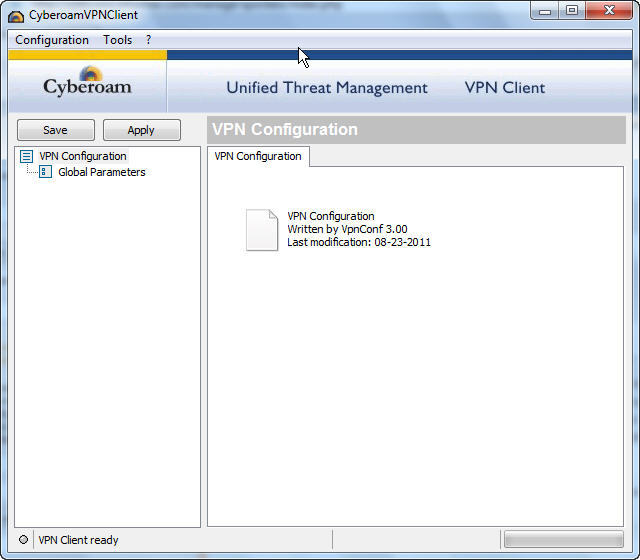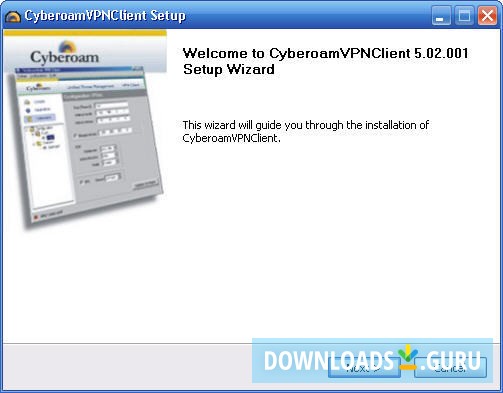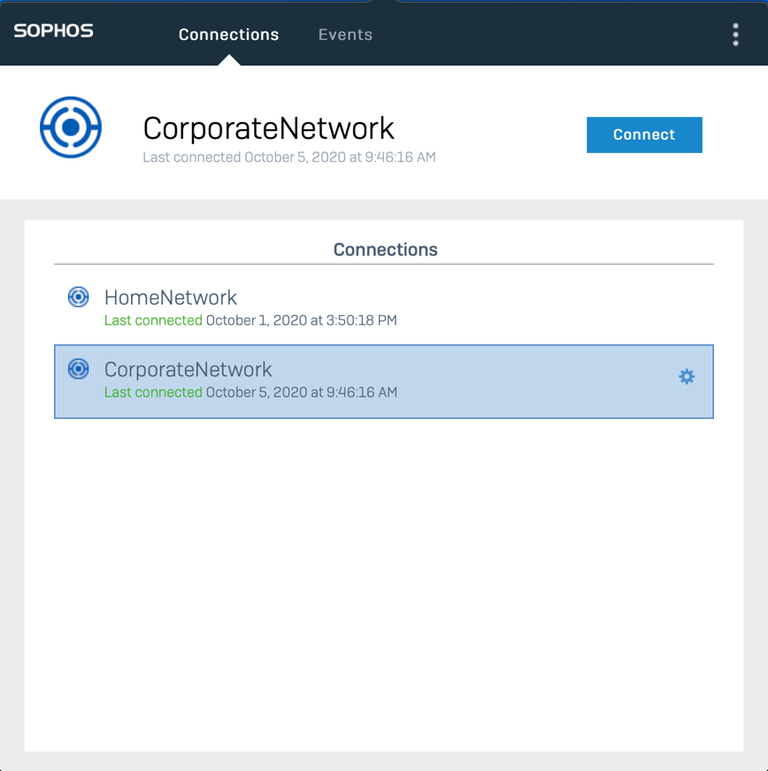

#HOW TO CONFIGURE CYBEROAM SSL VPN CLIENT PASSWORD#
AD password, concatenated with an OTP from their ESA Mobile application in the Password field.Enter the following credentials using your test account:.

For example, for SSL VPN Authentication, select "ESA RADIUS" as the authentication method, as per Figure 3-1. Configure the relevant VPN Authentication Methods.In the left panel, navigate to Identity → Authentication → VPN.Do not proceed to Step III until the connectivity test is successful. You should see a success status message in the bottom left, (see Figure 2-2). For example, if the user has an AD password of Esa123 and an OTP of 999111, you should type Esa123999111.

When prompted for a password, append the OTP generated by the ESA Mobile Application to your AD password. Make sure that you are using a user with Mobile Application 2FA using ESA enabled.

Make sure that the check box next to Compound Authentication is selected.ĮSA has now been configured to communicate with the Cyberoam® device.It is also recommended that you limit VPN access to a security group in the Users section. To prevent locking any existing, non-2FA enabled AD users out of your VPN we recommend that you allow Non-2FA users during the transitioning phase.In the Authentication section apply the settings shown in Figure 1-1 below.The shared secret is the RADIUS shared secret for the external authenticator that you will configure on your appliance.If your appliance communicates via IPv6, use that IP address along with the related scope ID (interface ID). The IP address is the internal IP address of your appliance. Configure the IP Address and Shared Secret for the Client so that they correspond to the configuration of your VPN appliance.Give the RADIUS client a memorable name for easy reference.Click the hostname, then click Create New Radius Client.Navigate to Components > RADIUS and locate the hostname of the server running the ESA RADIUS service.To allow the Cyberoam® device to communicate with your ESA Server, you must configure the device as a RADIUS client on your ESA Server: If you wish to utilize other Client type, refer to generic description of Client types and verify with the vendor if the VPN appliance supports it. This integration guide utilizes Client does not validate user name and password Client type for this particular VPN appliance.


 0 kommentar(er)
0 kommentar(er)
